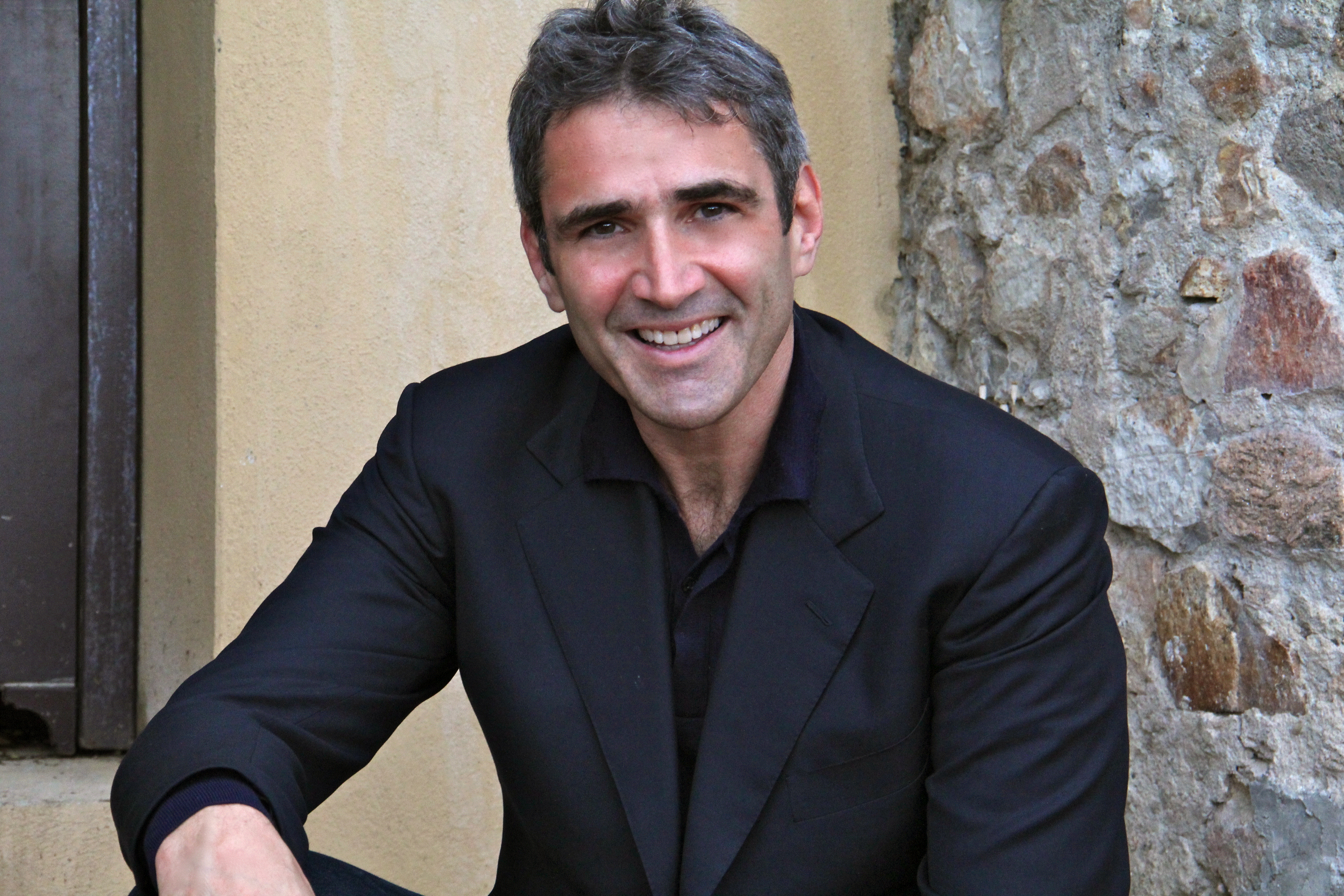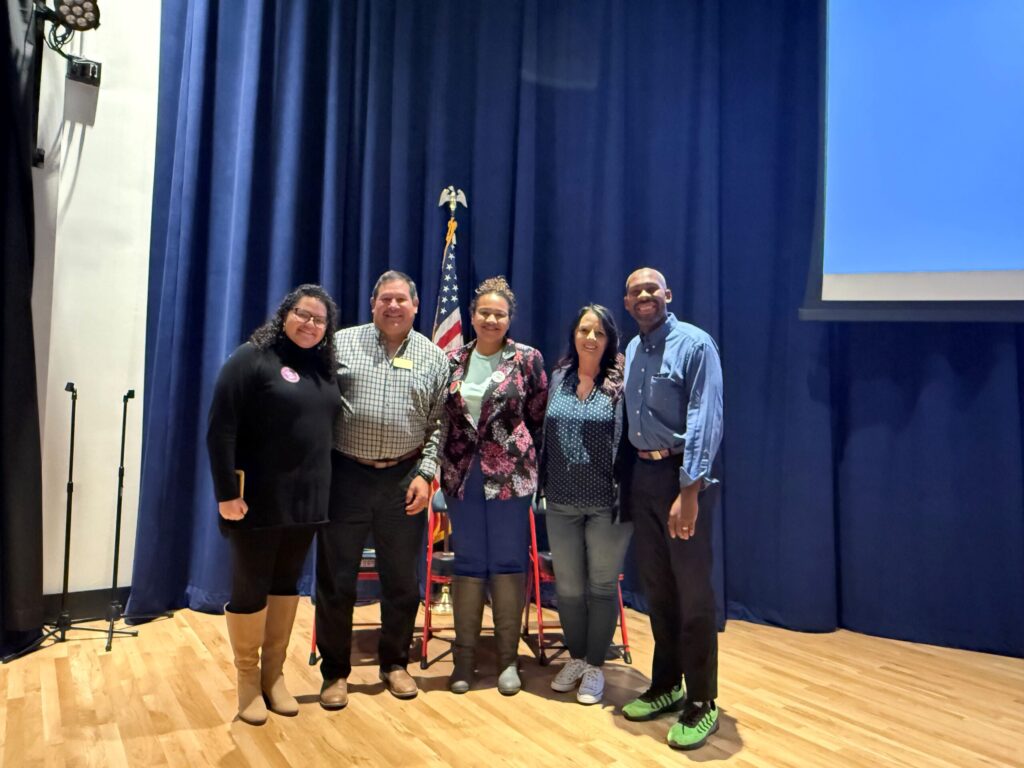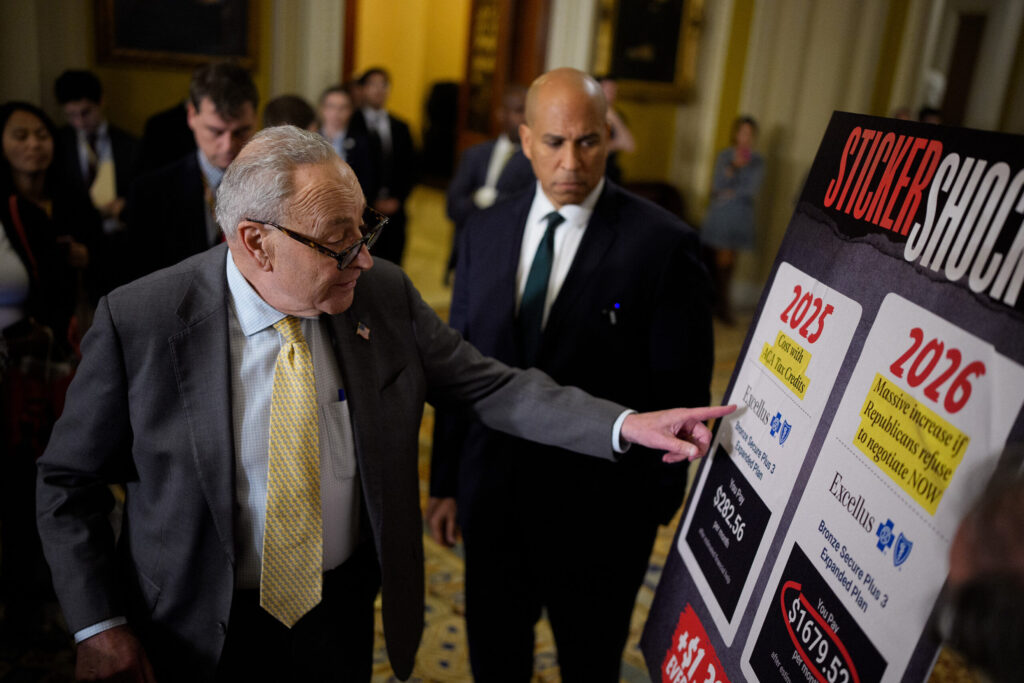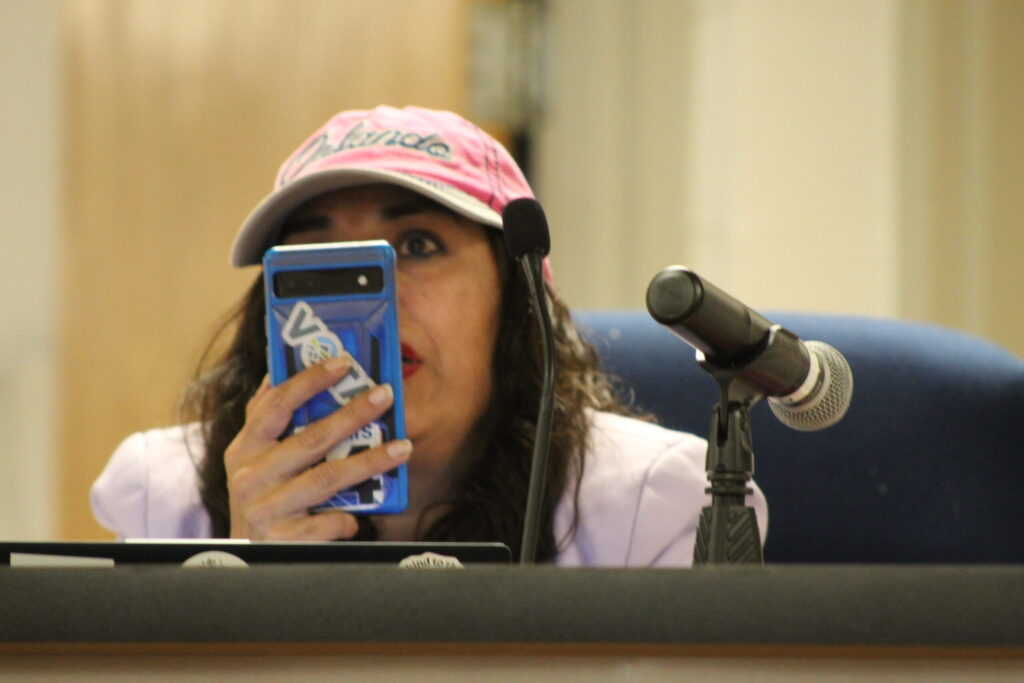Q&A with Roger Barris | ‘I want a government so small that we don’t have to fight over it’

It’s tough enough trying to get noticed as a third-party candidate. It’s tougher still in a race perennially dominated by only one of the two major parties.
In such cases, a third party’s pick doesn’t even get a chance to tip the scales between a Democrat and a Republican.
None of that deterred Roger Barris, the Libertarian Party candidate who finished fourth last November in his bid to represent Colorado’s indelibly blue 2nd Congressional District in the U.S. House.
The seat was vacated by the state’s incoming governor, Democratic U.S. Rep. Jared Polis, and will of course stay in the Democratic fold with the lopsided victory of Joe Neguse this past Nov. 6.
So, what did Barris, an investor and entrepreneur from Evergreen, hope to gain? He recaps his strategy for us in this week’s Q&A.
Barris also shares his own, early path toward his limited-government world view as well as how he thinks the Libertarian Party could sell its message more effectively to voters. Among other considerations, he notes, “…we need to be more pragmatic – running around and screaming ‘taxation is theft’ convinces no one but ourselves.”
Once libertarians build that bridge to the broader electorate, Barris says, the philosophy itself will appeal to the public as sound in principle as well as in practice. He tells us, “Freedom works! The goal of the Libertarian Party should be to show voters that our push for greater individual freedom is not only morally and constitutionally correct, but it will also make their lives better.”
Colorado Politics: A Republican doesn’t have a prayer of winning Colorado’s 2nd Congressional District; the victor last Nov. 6, Joe Neguse, beat the GOP’s Peter Yu 2-to-1. You came in fourth behind independent candidate Nick Thomas. So, why does a libertarian run in that district?
Roger Barris: You mean besides masochism?
I certainly had no illusions about winning, although I thought that I would do better than I did. But there are two characteristics of the district that I liked.
The first was that it is deep blue, which I hoped would overcome the “wasted vote” fear that hurts third parties. In this race, a vote for the Republican candidate was equally “wasted” because Peter Yu had no chance of winning – just as a vote for Joe Neguse was “wasted” because he was unquestionably going to win. I wanted to be able to point out to voters that a vote for me was, in fact, the only meaningful one because it would promote the emergence of a major third party, which almost 60 percent of Americans say they want. My goal was to beat the Republican, or at least get close, which would have gone a long way to breaking the duopoly.
Unfortunately, either voters didn’t care for this argument or they didn’t understand it. Or they just didn’t like me.
I also liked the fact that there are two big college towns in the district. Young voters are not as set in their ways. They are also more idealistic and ideological, and many of them are attracted to libertarianism – witness, for example, the standing ovation that U.S. Sen. Rand Paul got when he walked into the cafeteria at CU Boulder before the first Republican presidential debate in 2016.
Finally, I knew that this election would be, in many respects, a referendum about Trump, particularly among the young. As a Libertarian, I wouldn’t have the burden of defending him.
Roger Barris
- Semi-retired investor and entrepreneur from Evergreen; he was the Colorado Libertarian Party’s candidate last year for the 2ndCongressional District seat being vacated by five-term Democratic U.S. Rep. and Gov.-elect Jared Polis.
- Had a three-decade career in finance, primarily as a real estate investor for banks and private equity funds, including Goldman Sachs, Deutsche Bank, Starwood Capital and Merrill Lynch, as well as his own firm, Peakside Capital.
- Holds B.A. in economics, graduating summa cum laude from Bowdoin College in Brunswick, Maine, and the London School of Economics; holds an MBA in finance from the University of Michigan.
- A lifetime member of the Libertarian Party and a significant supporter of libertarian organizations, including the Cato Institute, the Institute for Justice, the Reason Foundation and the Atlas Society.
CP: It is said that both major parties have strands of libertarianism in their platforms – Democrats on justice and civil-rights issues, for example, and Republicans on economic regulation. Yet, most voters in either party are likely to vote party line no matter how strongly they may agree with various Libertarian Party positions. However, Colorado’s No. 1 voting bloc – unaffiliateds – arguably is another matter. What in the Libertarian platform do you think should appeal to them? How might your party make deeper inroads among unaffiliateds?
Barris: It is a well-known fact among political scientists that most unaffiliated voters tend to vote on partisan lines, either like Democrats or Republicans. Therefore, I don’t think that the Libertarian Party has to do anything in particular to appeal to this group – we have to make the same appeals to them as we would make to Democrats or Republicans. However, this should be an easier “sell” because the one thing that they are clearly signaling with their lack of party affiliation is that they are more open-minded.
The bigger question is what the LP needs to do to increase its appeal to all voters. Here, I am pretty convinced that we need to be more pragmatic – running around and screaming “taxation is theft” convinces no one but ourselves. We have to speak to the 98 percent of the population that isn’t already with us, and we have to talk about the things they care about in their day-to-day lives, and not our libertarian hobby horses.
My campaign motto was: Freedom works! The goal of the Libertarian Party should be to show voters that our push for greater individual freedom is not only morally and constitutionally correct, but it will also make their lives better.
CP: Tell us a little about your background and what drew you to libertarianism.
Barris: I have been a libertarian since I was 17 years old. Prior to that, I was fashionably left-wing – I remember trying to read Marx’s “Das Kapital,” impenetrable nonsense that it is – and then a friend gave me a copy of a book called “The Machinery of Freedom” by David Friedman, the son of the Nobel-winning economist. And I had a Damascene moment. It just clicked. Everything the book said made sense to me.
I then studied economics at college and, as I always say, if you truly understand economics, it can only make you more libertarian.
In my old age, I have also grown to appreciate libertarianism for two additional reasons. The first is that I hate hypocrisy and small-government libertarianism is the only political philosophy that allows me to avoid this. (As I used to say in my campaign: “We want to keep the Democrats out of your wallet and the Republicans out of your bedroom!”)
The second is my belief that there is absolutely no way that a bunch of politicians can be better at running my life than I – or any other citizen – can be. I think that most politicians are mediocrities who are made even worse by bad incentives. But even if they weren’t, there is just no way that they can have sufficient knowledge to run the lives of 330 million people spread across an entire continent. And their attempt to do so much is one of the major reasons they do nothing well.
CP: Your congressional campaign website declared, “Both sides must stop trying to use Big Government to impose their views on others. … Respect for individual freedom and federalism are the paths to unity based on a policy of ‘live and let live.'” You’d think that message would play well in a place like Boulder, which culturally celebrates diversity and tolerance. Why doesn’t the Libertarian Party have more traction there? Is it a philosophical disconnect? Or, is it the two-party lockdown – the institutional bias built into the election process and the media – that hinders third parties?
Barris: Well, the two-party lockdown is certainly a huge factor. It is a well-known fact that the type of electoral system we have strongly promotes a two-party system. The political scientists call this Duverger’s Law. Therefore, a third-party can only really succeed by replacing one of the two dominant parties. The last time this happened in America was in the 1850s at the time of the slavery crisis. I think that America is approaching a crisis point again, but it is clear that 2018 was insufficiently ripe.
But the other factor is that – if I can put this delicately – perhaps many Boulderites are insufficiently pure in their advocacy of diversity and tolerance? Frankly, much of it is nothing more than a superficial and incredibly destructive “identity politics.”
The Libertarian Party is a party of ideas. The diversity we celebrate is one of thinking. Sadly, this is not a priority in places like Boulder, where opinion is often conventional, monotone and tribal and where conflicting evidence and logic are not welcome.
CP: What are some perennially pressing Colorado issues you think could be resolved by libertarian sensibilities?
Barris: These are almost too numerous to mention, but let me tell you a story.
A high school held a candidate forum. One of the students asked a question about transgender people and bathrooms. Peter Yu gave a wishy-washy answer about being sympathetic but also pointed out that he was a member of a gym and he wasn’t sure that transgender people should be allowed to use the shower and changing room of their choice.
My answer followed up on the gym example and was straightforward: There should be no law. Each gym should be allowed to decide a policy that makes sense for its members. Then, if someone doesn’t like this policy, there are dozens of other gyms from which to choose.
In other words, a free market means that we don’t have to live with “one size fits all,” any more than we all have to like the same music. A governmental rule, however, means that everyone has to be shoe-horned into the same thing. Conflict and divisiveness are the inevitable results.
Or, as one of my campaign sayings put it, “I want a government so small that we don’t have to fight over it.”
CP: Your background is in investment banking and real estate. What prompted you to run for Congress? You’re semi-retired, but some still might wonder why you would trade the prosperity and success of the entrepreneurial life, or the comfort of semi-retirement, for the frustration and gridlock of Capitol Hill.
Barris: My girlfriend asks me the same question.
The reality is that I love policy so much that I am willing to endure the frustration and gridlock of politics in order to be able to influence it.
As an investor, my strategy was “buy – fix – sell.” My group would make money by buying broken real estate and then fixing it, before selling it on. Frankly, we were very good at this – over my career, groups I led invested more than $20 billion and we never had a losing year.
The “fixing” was often pretty simple. As Thomas Edison said, “genius is 1 percent inspiration and 99 percent perspiration.” When I look at the government, I see the same opportunity. It is amazing how many of the biggest problems we have – affordable housing; K-12 education; higher education; foreign policy; deficits; divisiveness, etc. – can be solved, or at least greatly reduced, through the application of common sense and solid economic thinking.
Although politics is doubtlessly frustrating, it is equally frustrating to sit by and watch the hot mess that our current policies are creating.
CP: This wasn’t your first run for office; decades ago you vied for a seat on your local county commission in your native Michigan. Will you ever seek office again?
Barris: As I said, my goal is to influence policy. The question I am asking myself, particularly after a very disappointing campaign, is: What is the most effective way to do this?
Is it to run again? If so, as a Libertarian or as a “renegade” in one of the old parties?
Would my efforts be more effective working for another candidate who shares my views? Am I actually a good candidate? Can I function at the levels of emotion and “narrative” that seem to be so important in these contests (and which, frankly, I disdain)?
Or should I focus my efforts “up-stream” from politics? Should I work with libertarian publications and think tanks in order to help shape the debate? Should I write more – including the book projects I have in mind? Or maybe I should teach?
I wish I knew.














